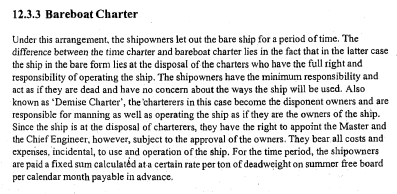Solutions to Assignments
IBO - 05 - International Marketing Logistics
Master of Commerce (M.Com) - 1st Year
Question No. 1
(a) What are the various factors taken into consideration while selecting the mode of transportation for export cargo. Explain.
1. Cost of Service:
The cost of transportation adds to the cost of the goods so it should always be kept in mind. Rail transport is comparatively a cheaper mode of transport for carrying heavy and bulky traffic over long distances. Motor transport is best suited and economical to carry small traffic over short distances. Motor transport saves packing and handling costs.
Water transport is the cheapest mode of transport. It is suitable to carry only heavy and bulky goods over long distances where time is not an important factor. Air transport is the most costly means of transport but is particularly suited for carrying perishable, light and valuable goods which require quick delivery.
2. Speed of Transport:
Air transport is the quickest mode of transport but it is costliest of all. Motor transport is quicker than railways over short distances. However, the speed of railways over long distances is more than that of other modes of transport except air transport and is most suitable for long distances. Water transport is very slow and thus unsuitable where time is an important factor.
3. Flexibility:
Railways, water and air transport are inflexible modes of transport. They operate services on fixed routes and at preplanned time schedules. The goods have to be carried to the stations, ports and airports and then taken from there. Motor transport provides the most flexible service because it is not tied to fixed routes or time schedules. It can operate at any time and can reach the business premises for loading and unloading.
4. Regularity of Service:
Railway service is more certain, uniform and regular as compared to any other mode of transport. It is not much affected by weather conditions. On the other hand, motor transport, ocean transport and air transport are affected by bad weather such as heavy rains, snow, fog, storms etc.
5. Safety:
Safety and security of goods in transit also influence the choice of a suitable means of transport. Motor transport may be preferred to railway transport because losses are generally less in motor transport. Water transport exposes the goods to the perils of sea and, hence from safety point of view, sea transport is thought of as a last resort.
6. Nature of Commodity:
Rail transport is most suitable for carrying cheap, bulk and heavy goods. Perishable goods which require quick delivery may be carried through motor transport or air transport keeping in mind the cost and distance.
7. Other Considerations:
A number of special services such as warehousing, packing, loading and unloading are also taken into consideration while deciding about a mode of transport. From the above discussion it is clear that each mode of transport is suited for a particular type of traffic.
The rail transport is particularly suited for carrying heavy and bulky goods over long distances. Motor transport is suitable for carrying small consignments over short distances. Air transport is suited to light and precious articles which are to be delivered quickly. Ocean transport is appropriate for carrying heavy bulky goods over long distances at the cheapest possible cost.







